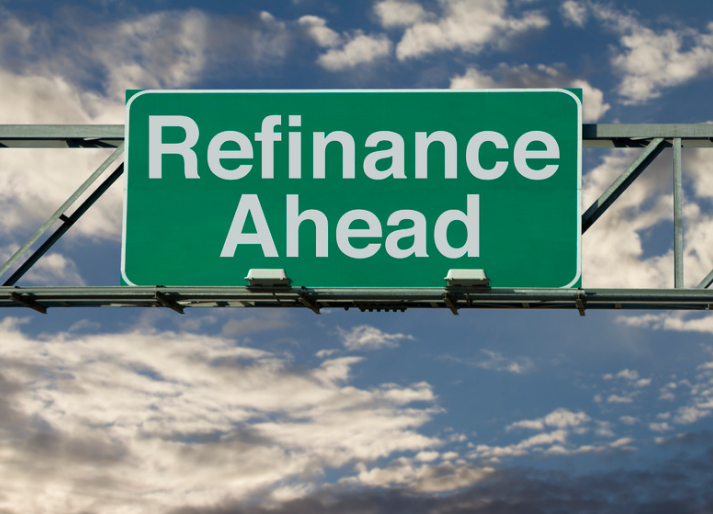Q&A Regarding Earnest Money
July 8, 2024
What is all this talk about Earnest Money?
Q: What is Earnest Money?
A: Earnest money is given by the buyer to the seller when a real estate purchase contract is accepted. The money is a good faith offering to the seller that you will perform on the agreed upon contract.
Q: Why Do I Have to Submit Earnest Money? A: You don’t. Earnest money is a negotiable consideration in a real estate purchase contract and is not required by law. However, earnest money is usually required by a seller and if you refuse to submit a deposit with your contract, the seller probably won’t accept your offer.
Q: How Much Earnest Money Do I Offer? A: Typically, in our area, earnest money changes depending on the price of the home, but it is pretty standard practice that earnest money is 1% of the purchase price. For example, a home priced at $150,000 will request $1,500 of earnest money and a home priced at $500,000 will have an earnest money request of $5,000. Again, this is negotiable between you and the seller.
Q: When Is My Earnest Money Deposited? A: Each state is a little different, once your offer has been accepted by both parties, the earnest money deposit must be deposited usually within 3-4 days into the brokerage's real estate trust account or title company. Be sure to have the appropriate funds in your account. If you don’t, a bounced check could be a breach of contract and your offer will then become invalid.
Q: Who Holds My Earnest Money? A: In the first paragraph of the REPC (Real Estate Purchase Contract), it states the earnest money is to be deposited into the brokerage escrow (trust) account of the seller within 4 calendar days. Be careful who you allow to deposit your earnest money. Trusted real estate brokerages and title companies are probably the best place to have earnest money deposited, as they have highly regulated trust accounts. Developers or contractors don’t have the same regulations and it might be better to place your earnest money into the hands of a trusted title attorney until closing. Never give your earnest money to a seller and always get a receipt!
Q: Does My Earnest Money Earn Interest During the Contract? A: It depends. If the earnest money is deposited into an escrow trust account, then no, it does not earn interest as these accounts are non- interest accounts. If you have it placed in any other account that does bare interest, than it’s up to the buyer and seller to decide who receives any interest gained from the deposit.
Q: If I Cancel the Contract During My Due Diligence Period, Do I Get My Earnest Money Deposit Back? A: It depends on the contract stipulations and contingencies. In a real estate contract, the buyer has a few options to cancel the contract without losing their earnest money during the due diligence period. If, during the home inspection period and appraisal deadline, you’re not satisfied with the condition of the home or the home doesn’t appraise, you can cancel the contract and retain your deposit. Also, if you are unable to obtain financing during the financing contingency period, you may cancel the contract and retain your earnest money. It’s very important, if you don’t want to lose your earnest money, to stay within the deadlines of your contract. I have witnessed both agents and buyers blow off deadlines causing them to lose their deposits. It’s up to you and your agent to stay within the confines of the contract agreed upon, and if you don’t, be aware you could lose your deposit.
Q: What Happens If I Cancel the Contract After My Financing & Appraisal Deadline? A: If, after the expiration of the financing & appraisal deadline, you fail to obtain a loan, then either you or seller may cancel the REPC with written notice. After written notice of cancellation, your earnest money will be released to the seller as it states in the contract. You may also extend the deadlines if the seller agrees, if not, then your earnest money will be forfeit.
Q: What If There Are Damages to the Property Before We Close? A: As stated in the REPC, if the property is damaged or destroyed by fire, vandalism, flood, earthquake, or act of God, the risk will be placed upon the seller if the damage exceeds more than 10% of the purchase price, at which point, either party may cancel the REPC and the earnest money deposit will be returned to the buyer. Basically, if the property is damaged during contract negotiations, the seller has to pay to fix it or you can walk.
Earnest money is very important to a real estate contract and must be taken seriously. If you don’t want to lose your deposit, be sure to stay on top of your dates in the contract. If, for some reason, you can’t stay within the dates of the contract, your agent should be smart enough to ask for an extension or cancel the contract before you lose your earnest money.
Original article can be found at: //www.lisaudy.com/earnest-money.php
Q: Why Do I Have to Submit Earnest Money? A: You don’t. Earnest money is a negotiable consideration in a real estate purchase contract and is not required by law. However, earnest money is usually required by a seller and if you refuse to submit a deposit with your contract, the seller probably won’t accept your offer.
Q: How Much Earnest Money Do I Offer? A: Typically, in our area, earnest money changes depending on the price of the home, but it is pretty standard practice that earnest money is 1% of the purchase price. For example, a home priced at $150,000 will request $1,500 of earnest money and a home priced at $500,000 will have an earnest money request of $5,000. Again, this is negotiable between you and the seller.
Q: When Is My Earnest Money Deposited? A: Each state is a little different, once your offer has been accepted by both parties, the earnest money deposit must be deposited usually within 3-4 days into the brokerage's real estate trust account or title company. Be sure to have the appropriate funds in your account. If you don’t, a bounced check could be a breach of contract and your offer will then become invalid.
Q: Who Holds My Earnest Money? A: In the first paragraph of the REPC (Real Estate Purchase Contract), it states the earnest money is to be deposited into the brokerage escrow (trust) account of the seller within 4 calendar days. Be careful who you allow to deposit your earnest money. Trusted real estate brokerages and title companies are probably the best place to have earnest money deposited, as they have highly regulated trust accounts. Developers or contractors don’t have the same regulations and it might be better to place your earnest money into the hands of a trusted title attorney until closing. Never give your earnest money to a seller and always get a receipt!
Q: Does My Earnest Money Earn Interest During the Contract? A: It depends. If the earnest money is deposited into an escrow trust account, then no, it does not earn interest as these accounts are non- interest accounts. If you have it placed in any other account that does bare interest, than it’s up to the buyer and seller to decide who receives any interest gained from the deposit.
Q: If I Cancel the Contract During My Due Diligence Period, Do I Get My Earnest Money Deposit Back? A: It depends on the contract stipulations and contingencies. In a real estate contract, the buyer has a few options to cancel the contract without losing their earnest money during the due diligence period. If, during the home inspection period and appraisal deadline, you’re not satisfied with the condition of the home or the home doesn’t appraise, you can cancel the contract and retain your deposit. Also, if you are unable to obtain financing during the financing contingency period, you may cancel the contract and retain your earnest money. It’s very important, if you don’t want to lose your earnest money, to stay within the deadlines of your contract. I have witnessed both agents and buyers blow off deadlines causing them to lose their deposits. It’s up to you and your agent to stay within the confines of the contract agreed upon, and if you don’t, be aware you could lose your deposit.
Q: What Happens If I Cancel the Contract After My Financing & Appraisal Deadline? A: If, after the expiration of the financing & appraisal deadline, you fail to obtain a loan, then either you or seller may cancel the REPC with written notice. After written notice of cancellation, your earnest money will be released to the seller as it states in the contract. You may also extend the deadlines if the seller agrees, if not, then your earnest money will be forfeit.
Q: What If There Are Damages to the Property Before We Close? A: As stated in the REPC, if the property is damaged or destroyed by fire, vandalism, flood, earthquake, or act of God, the risk will be placed upon the seller if the damage exceeds more than 10% of the purchase price, at which point, either party may cancel the REPC and the earnest money deposit will be returned to the buyer. Basically, if the property is damaged during contract negotiations, the seller has to pay to fix it or you can walk.
Earnest money is very important to a real estate contract and must be taken seriously. If you don’t want to lose your deposit, be sure to stay on top of your dates in the contract. If, for some reason, you can’t stay within the dates of the contract, your agent should be smart enough to ask for an extension or cancel the contract before you lose your earnest money.
Original article can be found at: //www.lisaudy.com/earnest-money.php

By kim.renquest
•
February 21, 2024
In today's fast-paced, ever-changing real estate marketplace, moving homes without the immediate need to sell an existing residence provides an unmatched level of flexibility and strategic advantage to the process. In an environment where the movement of interest rates and market dynamics is so erratic, the traditional process of buying and selling can be very intimidating. But the historical record is clear, it pays to invest in real estate. How? Well, since 1942, homeowners who have held their properties for a decade or more have never failed to realize gains on their investments in all but one period.












